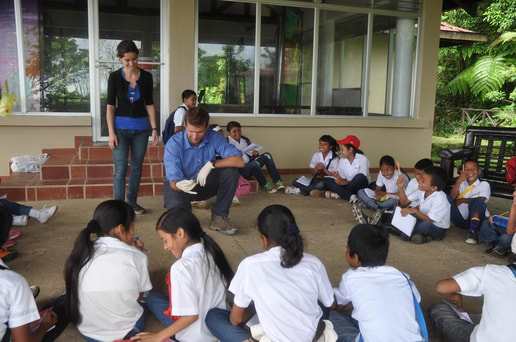Welcome to the DiRenzo Lab page!
We work on a variety of topics to advance ecological knowledge and wildlife conservation using quantitative tools and decision science.
We are particularly interested in disease dynamics, community and population ecology, species conservation, decision analysis, and structured decision making. We work closely with practitioners to advance actionable ecological knowledge and wildlife conservation solutions using quantitative tools and decision science.
Below you can find more information on these topics and how we aim to make our science inclusive, open, and reproducible.
If you are interested in graduate school or joining this lab group, please navigate to the Prospective students page.
We work on a variety of topics to advance ecological knowledge and wildlife conservation using quantitative tools and decision science.
We are particularly interested in disease dynamics, community and population ecology, species conservation, decision analysis, and structured decision making. We work closely with practitioners to advance actionable ecological knowledge and wildlife conservation solutions using quantitative tools and decision science.
Below you can find more information on these topics and how we aim to make our science inclusive, open, and reproducible.
If you are interested in graduate school or joining this lab group, please navigate to the Prospective students page.
Research program.
Disease, population, & community ecologyBroadly, we are interested in understanding how disturbance impacts population dynamics and community composition.
One type of disturbance we have predominately focused on thus far is disease invasion. In this case, we might expect that different species would respond differently to disease infection, where differences are reflected in population dynamics and that there may be some commonalities across species' responses at the community level. Check out the following papers related to this topic:
|
Advanced quantitative approachesBroadly, we are interested in understanding how imperfect host detection influences parameter estimation and inference, while taking advantage of commonly collected data (i.e., data from populations where individuals are not individually marked).
We develop novel Bayesian hierarchical models using detection/non-detection or count data to accurately and precisely estimate parameters that are comparable to estimates generated from data collected by marking individuals, which can be costly and labor-intensive. Check out the following papers related to this topic:
|
Decision analysisDisease management is challenging because decisions related to disease management must be made under uncertainty. We use decision analysis tools to frame and analyze decisions for several disease systems, and we develop models for supporting pathogen surveillance and management decisions on federally and state managed lands. The decision analysis tools aid in identifying objectives first and provide a greater context for disease research. We focus on current emerging infectious diseases such as chronic wasting disease (CWD), the salamander killing fungus (Bsal), white-nose syndrome (WNS), and coronaviruses (SARS-CoV-2).
Check out the following papers related to this topic:
|
For more details, check out the Research and Publications pages.
Diversity, Equity, Inclusion, and Justice.

At the Massachusetts Cooperative Fish & Wildlife Unit, our goal is to create an inclusive, equitable scientific community. We are committed to promoting a safe, productive, and diverse environment with a focus on training and mentorship. We pledge to combat issues of inequality in science and dismantle racist policies. We pledge to support students by providing an open and supportive environment, speaking up, and guiding individuals resources. We aim to be better colleagues by listening without judgement, making space for people’s voices, and treating everyone with respect. We will not tolerate unwanted words or actions that constitute harassment or outright bigotry anywhere– in the classroom, the lab, or the field. We are committed to reflection, self-education, action, and accountability. We encourage students from diverse backgrounds to come work with us, where we strive to offer the support, mentorship, experience, and inspiration students need to succeed in science.
For more information and specifics on the DiRenzo Lab core values and actions, please visit the Ethics page.
For more information and specifics on the DiRenzo Lab core values and actions, please visit the Ethics page.
Open reproducible science.

We are committed to open, reproducible science. You can check out the datasets and code associated with our research - both data and code repositories are listed under each publication.
I highly encourage others to check out the Guide to Reproducible Code in Ecology & Evolution by the British Ecological Society.
I highly encourage others to check out the Guide to Reproducible Code in Ecology & Evolution by the British Ecological Society.



